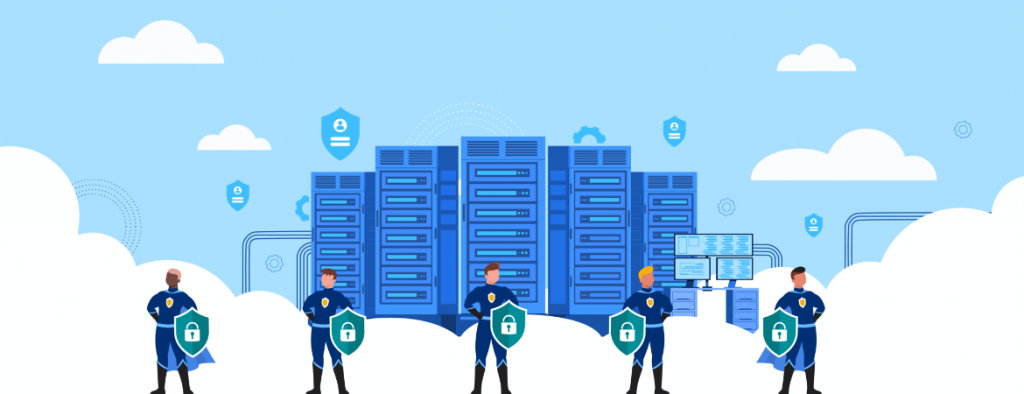There are 3 kinds of opportunities you could get if you work in the field of data protection and privacy management:
- Jobs in India
- International remote freelance work
- Foreign jobs
You will be surprised to know the difference in pay if you work in data protection & privacy management vs. anything else.
Data protection pays head and shoulders over everything else.
The gap will only widen as demand increases, regulations increase, but supply of skilled talent remains scarce.
If you want to make the most of it, get started early so that you build a massive track record.
Interestingly, it doesn’t take too long – in a matter of 3 months you could already be on the way!
Before I tell you how, let me tell you about the 3 opportunities.
1 – Jobs in India
Key Recruiters: Indian startups, mid-sized and large businesses, Big Four firms’ India offices, India offices of global financial services companies, banks, tech companies, privacy consulting firms, etc. recruit in India for their global privacy teams
Most of the work in these jobs is to cater to the needs of international clients of all these organisations as the Indian law is still to be fully implemented.
Entry-level positions start with designations such as privacy analyst, privacy associate, privacy technologist.
Senior level positions could be data protection officer, Chief Privacy Officer or Privacy Director.
There is a unique role called data protection officer which is specifically created under privacy laws.
Under the data protection laws across the world, there is no requirement that data protection/privacy team members of a company, or that their external consultants must be stationed in the same country.
That means a European company could appoint a trained professional from a small town in India to be their data protection officer!
Sometimes, they need to have a local representative in Europe to liaise with authorities, that’s all – this person can be separately appointed from the company’s local staff – and all the work and responsibility is substantially shouldered by the offshore DPO.
This implies that an Indian professional/student (trained in privacy) can be appointed as a data protection officer of a company in
Why in European companies only? You could even be appointed as a DPO of companies in US, Canada, Singapore, etc. sitting right here in India, as long has he/she is versed with data protection and privacy requirements.
Large global corporations, social media giants, Big Tech companies have already spotted this and heavily staffed their data privacy teams in India, to cater to their global privacy requirements!
Even the Big Four have set up data protection and privacy management teams in India for their global privacy work, and they pay very well (more than in other areas of work). Jobs in this domain are very frequently listed at all levels – junior, mid-level and senior.
Their foreign offices have much smaller teams in comparison, with only a handful of regional level senior or mid-level professionals.
For anyone who wants to work in the Big Four firms like KPMG, EY, Deloitte etc., learning how to perform data protection and privacy management work is the shortest and fastest way to get there.
If the Big Four are so eagerly looking out for talent and finding there to be a scarcity, you can imagine how high the demand actually is!
Here are the average salaries of people who work in the data protection and privacy management space in India.
Some of them work as data protection officers. You can see that even Indian salaries are much higher than in traditional jobs for ordinary graduates or even professionals, largely because this is a new and emerging area, and because they cater to foreign markets!
Compare this with an average professional’s salary in India:
Thus, if you work in data protection and privacy laws you could earn at least 2x of what another lawyer earns!
And the number of jobs in India alone is very high – I got 7744 results when I searched today!
You can go on LinkedIn and find such jobs right away.
Here are some of our students who are already doing this:
Sowmiah Ramamurthy, (December 2022), a 2016 graduate from Sri Venkateswara University, based in Chennai, secured a job as a consultant at Deloitte in May 2023, dealing with data protection and privacy, working from Chennai.
Chetandeep S. Batra, (September 2022), a 2019 graduate of Guru Nanak Dev University, based in Gurugram, Haryana, secured a job at Deloitte as a Senior Executive Privacy in February 2024.
Navtej Kakran, (December 2020), a 2021 graduate of St, Wilfred PG College, based in Delhi, secured a job as Deputy Manager (Data Privacy) at HCL Technologies in June 2022 and currently working as an Assistant Manager at PwC since June 2023, dealing with privacy policies, due diligence, etc.
2 – International remote freelance work (and jobs)
It is not necessary to work with Indian employers alone if you are trained in this area – in that case, you will be paid a salary as per Indian pay scales while the employer keeps most of the margins.
True, data protection and privacy salaries are higher than salaries in other domains, but what if you could work directly with your own international clients?
You could be far more successful that way.
You should note that only the top 1% of global businesses are able to set up their own office in India or work with the Big Four to reduce their costs.
The 7744 Indian jobs that we saw above reflect only this 1% of the market!
The remaining 99% of global businesses, comprising startups and SMEs cannot afford to give work to the Big Four or set up their own subsidiary/KPO, and are in dire need of cost-effective talent!
They are already spending a lot on data protection!
Also, data protection and privacy management work is very resource intensive, pushing companies to optimise costs.
This has created a massive opportunity for remote work for any Indian who is trained in this area.
How much can you earn through remote work?
As I said earlier, data protection laws do not specifically require a privacy professional to be physically present in the relevant country.
For this purpose, wherever needed for the purpose of having a local point of contact under the relevant foreign law, companies can appoint any existing officer to receive official communications locally, while most of the work is performed outside the country.
Let us assume that you charge USD 10 per hour of work.
In the US, you can’t hire someone to flip hamburgers at this price, forget hiring a trained privacy professional for that cost. Minimum wage in most states is higher than that.
Minimum wages in Europe are higher – Netherlands: € 92,08 (per day w.e.f. 1st July 2022); France: €10.85 per hour; Germany: 9.82 euros per hour; Switzerland: CHF 23.27 per hour
Consultants and lawyers in the US and Europe charge anywhere between USD 300-1700 per hour.
USD 10 per hour is dirt cheap. If you can do the work at USD 10 per hour, this is a no-brainer for international clients.
Now, assume that you work for 200 hours, that’s 8 hours per day, 25 days per month. How much will you earn?
USD 2000. That’s INR 1,60,000+!
This is only the beginning.
Once you have more experience, you can always charge USD 20-30 per hour.
Here is an Indian lawyer whom we helped to accomplish this:
Trisha Biswas, LawSikho (June 2021) a 2020 BA LLB graduate from Gandhinagar, is a freelancer working as a GDPR Lawyer at convert.com, a software development company, earning USD 30 per hour. She has worked on more than 20 jobs on Upwork and earned more than USD 70K.
In short, you can earn more from doing this work in the US or UK remotely than in domestic jobs in India.
And that too, by working on your own terms, working 40 hours a week, not subjecting yourself to an unhealthy work environment, and living anywhere you want.
This is possible because when you directly work with a foreign client, you are cutting out the middleman (any Indian employer), who keeps a lion’s share of the fees from the foreign client, while paying employees a fraction of the amount.
If you are already in a full time job, you can still build small side gig slowly to earn an additional INR 50K-75K per month (or USD 750-1000) working 2-3 hours a day.
Even if you are a student, you can still start earning by performing remote freelance projects and help domestic startups and earn INR 15,000 – 55,000 (USD 200 – 700) per month, working for 3-4 hours per day, which is manageable with college activities.
In the end, you get to decide how much you want to earn, what your circumstances are and how much time you can devote to this work. It does not take very long.
Plus, you get to learn a very important skill and build your track record right away so that you can change your career later on, shift jobs, etc.
If you want to secure foreign jobs, it is a great idea to pursue international remote freelance work or work in domestic jobs on international data protection and privacy management for some time, so that you can get opportunities to move abroad.
Given the huge scarcity of trained privacy professionals, these opportunities are huge in number, owing to high demand.
3 – Foreign jobs
Here are the average salaries for privacy counsels and privacy professionals internationally:
As you can see, average salaries are increasing every year:
Here is a professional we helped to land a full-time job in Canada that pays 80k Canadian dollars per year:
Shreya Bali, (May 2023), a 2018 graduate from Amity Law School, Delhi, shifted to Toronto, Ontario, Canada, in September 2023, and secured a job as a Senior Manager of privacy and Technology Policy at the Canadian Market Association in March 2024. She is earning 80,000 Canadian Dollars.
Are you interested in exploring this yourself?
You don’t have to leave what you’re already doing, just get started on the side slowly, and you can decide later if it feels right for you.






 Allow notifications
Allow notifications
